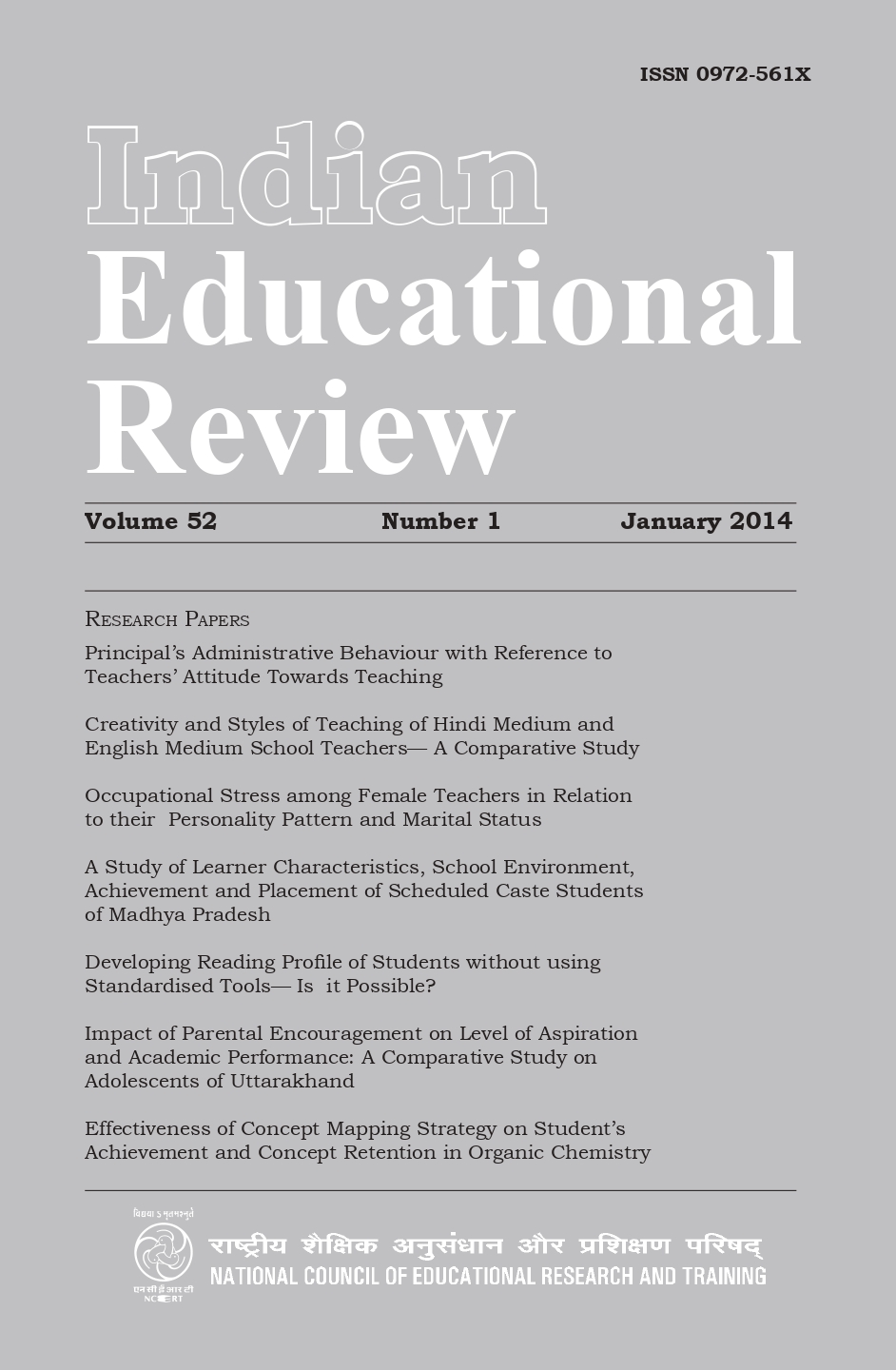Effectiveness of Concept Mapping Strategy on Student’s Achievement and Concept Retention in Organic Chemistry
Published 2024-12-31
Keywords
- Science Education,
- Dr. P.N. Mehrotra
How to Cite
Abstract
The present study aims to investigate the effectiveness of Concept mapping strategy on the achievement and concept retention in Organic Chemistry of Class XII science students belonging to higher Intelligence and lower Intelligence groups. For this purpose a sample of 80 science students was drawn from Class XII science students from a school at Varanasi (U.P.) affiliated to CBSE. The Pretest – Post test Non-equivalent Groups Design was used for this study. Two intact sections that is ‘A’ and ‘B’ of Class XII were chosen as the sample of the study. Out of these two sections, section ‘A’ was randomly assigned as the experimental group and other section ‘B’ as the control group. Both the groups were equated on intelligence using Mixed Group Test of Intelligence (Hindi Version) by Dr. P.N. Mehrotra, Verbal and Non-verbal Test. In both groups students of two levels of intelligence based on median split were given treatment. The control group was taught through Lecture method and the experimental group was taught through Concept mapping strategy. The students were tested with investigator constructed Pre and Post-test containing 25 multiple-choice questions. t-test was applied to arrive at the following conclusions: (i) Experimental group was found to attain significantly higher achievement scores and retained more in both higher and lower intelligence groups as compared to the control group. (ii) Higher intelligence experimental group was found to attain significantly higher achievement scores and retained more as compared to the lower intelligence experimental group.

